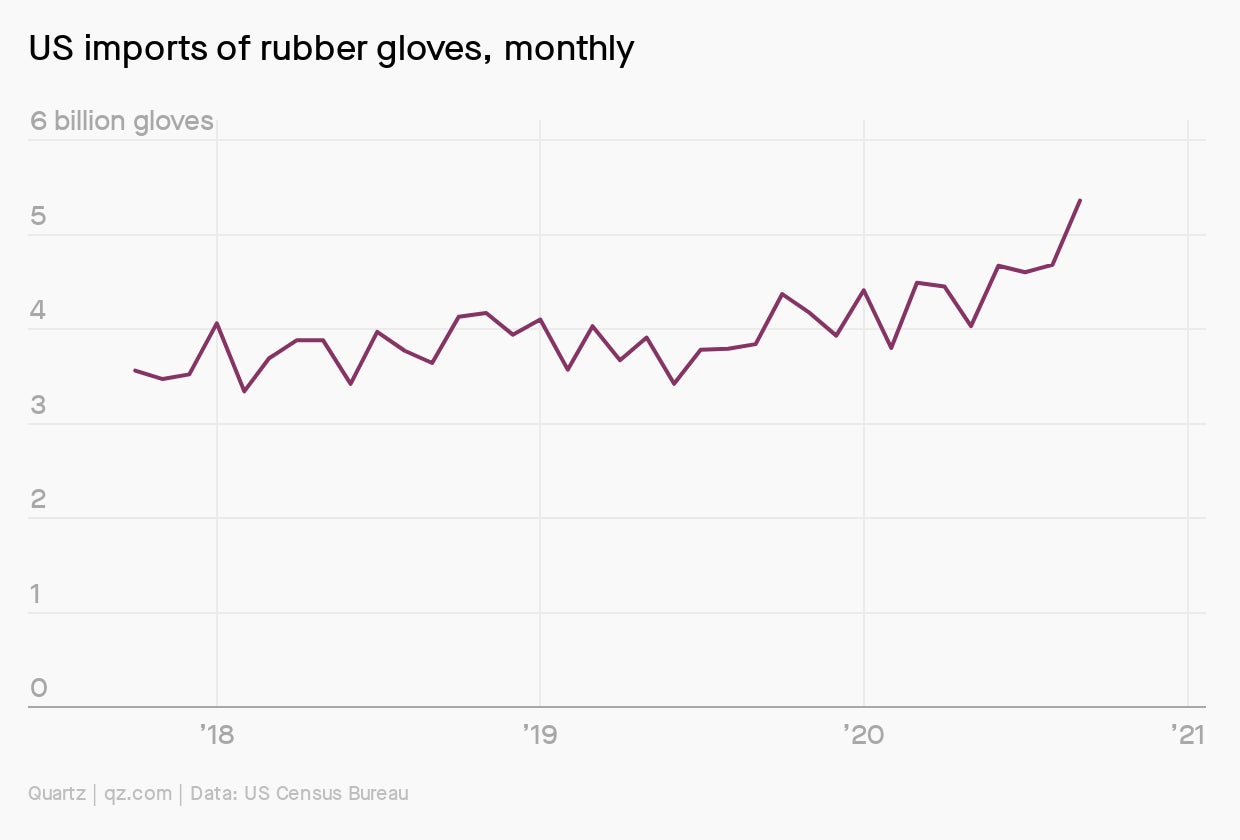Boeing 737’s return, the birth of cool, glowing platypuses
Good morning, Quartz readers!

Good morning, Quartz readers!
Here’s what you need to know
Boeing’s 737 MAX is set to fly again. The US Federal Aviation Administration is today likely to approve the safety upgrades Boeing has made since the aircraft’s grounding 20 months ago, following two fatal crashes that killed 346 people. The 737’s unavailability has cost the company around $20 billion.
US regulators approved the first rapid at-home coronavirus test. It has been developed by California-based Lucira Health, and can be completed from start to finish in one location and in only 30 minutes, without requiring an external laboratory to analyze samples.
Donald Trump fired his top election security official. Christopher Krebs was axed for contradicting the president’s baseless claims of voting fraud. Meanwhile, the US Senate blocked the appointment of Judy Shelton, Trump’s nominee to chair the Federal Reserve.
The US is dropping serious criminal charges against Mexico’s former defense minister. General Salvador Cienfuegos Zepeda was arrested at LAX last month and accused of drug trafficking and money laundering, which he denies. But he’ll instead return to Mexico to be investigated and possibly face charges there.
A US rare earth miner’s comeback
The New York Stock Exchange will feature a new company today: MP Materials, a producer of rare earths—a group of 17 minerals critical to many high-tech products. Behind its ticker, MP, is a tale of the American rare earth industry’s erstwhile dominance, how it ceded that to China, and the US’s attempts to regain it.
MP is the owner of the Mountain Pass rare earths mine in California. It was shuttered in 2002 and its previous owner went bankrupt in part due to pressure from China’s low prices. Wary of being reliant on China for critical minerals, the US wants to rebuild its domestic rare earths supply chain, and MP is part of that effort.
But being independent from China is no simple task. For one thing, MP is minority-owned by a Chinese firm, and is largely dependent on Chinese customers for its revenue. Mary Hui explains why the US wants to tackle China’s rare earths dominance, and the challenges ahead.
The most retailful time of the year
👗 Secondhand is king. The reselling industry is growing at a rate that should make fast fashion nervous, but it could just be another way to encourage excess consumption.
🔮 No one make holiday shopping predictions this year. With no precedent to guide them, the only thing analysts agree on is that e-commerce better be ready.
🙂 But Walmart has hopes for Joe Biden. CEO Doug McMillon just wants everyone to move on and get shopping—hopefully powered by a new stimulus bill.
Charting rubber demand
After a low in April, rubber has bounced back, buoyed by the depressingly strong demand for surgical gloves as the Covid-19 pandemic rages on. US Census data show the number of rubber gloves imported into the US rose 57% to 244 million pairs in the third quarter. Imports of all rubber gloves rose 28% to 14.6 billion pairs in the same period.

It’s not just gloves—tires are where the rubber meets the road, and new tires come standard with every new car. China’s automobile market is making up for lost time, while many Americans are favoring cars over public transit.
The birth of cool
“Cool” is one of those overused words whose definition has become fuzzy around the edges. Shoppers chase it, companies try to sell it, and generally speaking it indicates something positive, but with a range of connotations including stylish, original, authentic, rebellious, and more.
Originally, though, it had a slightly different meaning. Jazz musician Lester Young coined this usage of cool, unrelated to temperature, in the late 1930s. “When Young said, ‘I’m cool’ or ‘that’s cool,’ he meant ‘I’m calm,’ ‘I’m OK with that,’ or just ‘I’m keeping it together,'” professor and author Joel Dinerstein wrote in his book The Origins of Cool in Postwar America. The modern equivalent might be more like “chill.” For jazz musicians throughout the 1940s and 1950s, this attitude would translate into a sound marked by relaxed intensity and an emphasis on expressing one’s personal style.
To understand this early concept of cool, there’s no better method than listening to it. We asked Dinerstein to create a playlist for Quartz, and he put together a list of tracks representing the original sound of cool as it first evolved in jazz. Listen to it while you read our field guide to the new meaning of cool.
✦ When we say Quartz membership is cool, we mean it just like it sounds. Try a seven-day free trial.
Surprising discoveries
A tiger wandered nearly 2000 miles in India. Named Walker by wildlife officials who tracked him with GPS, he eventually settled down in a sanctuary in the western state of Maharashtra.
The world’s most expensive cities are Hong Kong, Paris, and Zurich. Osaka and Singapore fell in the Economist Intelligence Unit’s annual rankings.
The young Barack Obama read Foucault and Marcuse to pick up girls. So goes the former US president’s recollection of his college years in his new memoir, A Promised Land.
The platypus just keeps getting stranger. The venomous egg-laying mammal also glows under a blacklight.
There’s a baby seal boom in England. The Blakeney Nature Reserve expects a record-breaking 4,000 gray seal pups to be born this winter.
Correction: We said yesterday that Tesla will be added to the S&P 500 on Monday. The company is actually joining the index on Monday, Dec. 21.
Our best wishes for a productive day. Please send any news, comments, a house in Paris, and pick-up books to [email protected]. Get the most out of Quartz by downloading our iOS app and becoming a member. Today’s Daily Brief was brought to you by Hasit Shah, Liz Webber, and Susan Howson.